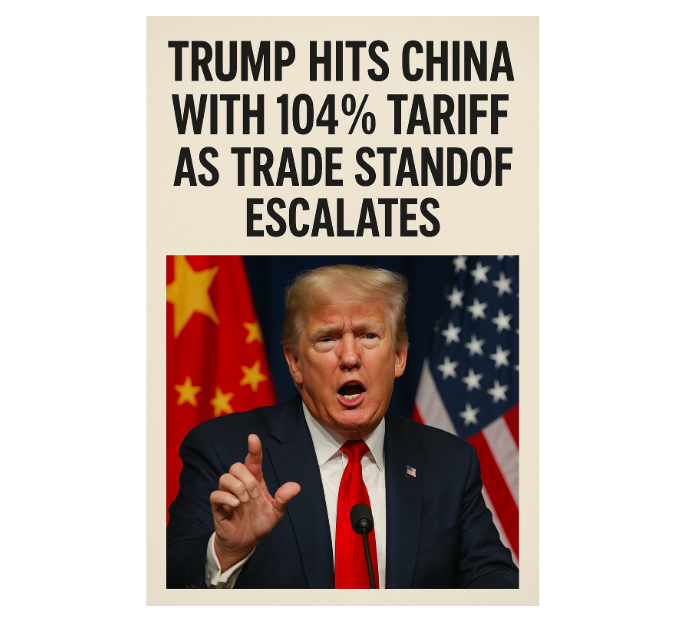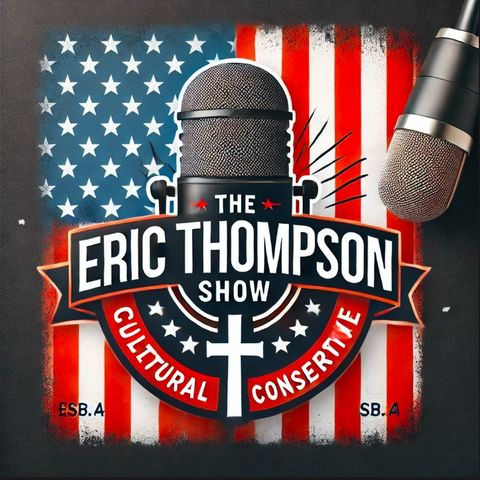President Donald J. Trump announced a sweeping 104% tariff on Chinese electric vehicles (EVs) this week, sharply escalating tensions with Beijing as Chinese leader Xi Jinping doubled down on retaliatory trade measures. Trump’s decisive move signals a return to his “America First” economic agenda and serves as a warning shot to countries that profit off imbalanced trade relationships with the United States.
The tariffs, unveiled during a rally in Michigan, target low-cost Chinese EVs that Trump says threaten the stability of America’s manufacturing sector. With Beijing refusing to roll back its retaliatory tariffs against U.S. goods, Trump declared, “China is not going to get away with this anymore,” vowing to restore American dominance in industrial production.
The 104% tariff applies to all Chinese-made electric vehicles, which Trump warned are “flooding the market” at the expense of American jobs. “If Biden won’t stop them, I will,” Trump said. “They’re subsidizing their vehicles, destroying our car industry, and laughing at us while doing it.”
China’s communist regime, rather than engaging in fair trade negotiations, has pledged to “fight till the end” in response to the new tariff policies, according to statements published in state media. The Chinese Ministry of Commerce accused the U.S. of “economic bullying” and reiterated its refusal to eliminate its own trade barriers.
Trump’s supporters argue that his tariff strategy is long overdue. They say America has been taken advantage of for too long by a regime that manipulates currency, steals intellectual property, and floods global markets with subsidized goods. Conservatives point out that President Joe Biden’s weak posture has only emboldened China’s aggressive economic behavior.
According to a report from Breitbart, Trump’s tariff announcement was met with strong applause from manufacturing and labor groups. Many see it as a necessary correction to years of misguided trade policy that prioritized globalism over American industry. Trump emphasized that his new tariff plan is not about isolationism but about self-preservation. “We’re not going to be the dumping ground for Chinese products anymore,” he said.
The Biden administration, while scrambling to respond to the tariff standoff, has been largely silent on China’s refusal to lift its retaliatory tariffs. Trump allies argue that Biden’s inaction and delay have created a vacuum of leadership on the global trade stage—one that Trump is now filling with strength and clarity.
Meanwhile, Chinese EV manufacturers are expected to take a hit, as the new tariffs will effectively price them out of the U.S. market. This move is aimed at safeguarding American auto jobs and protecting the nation’s growing domestic EV sector from being undercut by Beijing’s state-funded competition.
A report from the New York Post noted that U.S. officials have warned Beijing against underestimating the consequences of continuing this trade standoff. Washington insiders say China’s refusal to compromise may have long-term diplomatic consequences, particularly if Trump returns to the White House.
Trump’s allies in Congress are lining up behind the move. Senator Josh Hawley (R-MO) praised the tariffs as “exactly the kind of bold leadership we need to protect working-class Americans.” House Republicans echoed those sentiments, urging the Biden administration to adopt a firmer stance against Beijing’s economic aggression.
Economic experts aligned with the MAGA movement argue that Trump’s tariffs will serve as a wake-up call to multinational corporations that have shifted operations overseas. The former president is betting that higher costs for Chinese imports will revitalize U.S. factories, encourage domestic investment, and ultimately lower dependence on foreign manufacturing.
The strategic impact of these tariffs extends beyond the EV industry. Trump hinted at broader tariffs if China refuses to cooperate, including penalties on steel, pharmaceuticals, and semiconductors. “We have leverage, and we’re going to use it,” he said. “For too long, we’ve been on defense. That ends now.”
The former president’s America First economic doctrine once again takes center stage as global tensions rise. As Biden stumbles and Xi Jinping doubles down, Trump’s bold approach may define the next era of U.S.-China relations.
For conservative voters and business leaders frustrated by decades of lopsided trade, Trump’s 104% tariff signals a much-needed return to assertive American leadership. If Beijing continues to dig in, Trump’s strategy could prove not just bold—but necessary.






